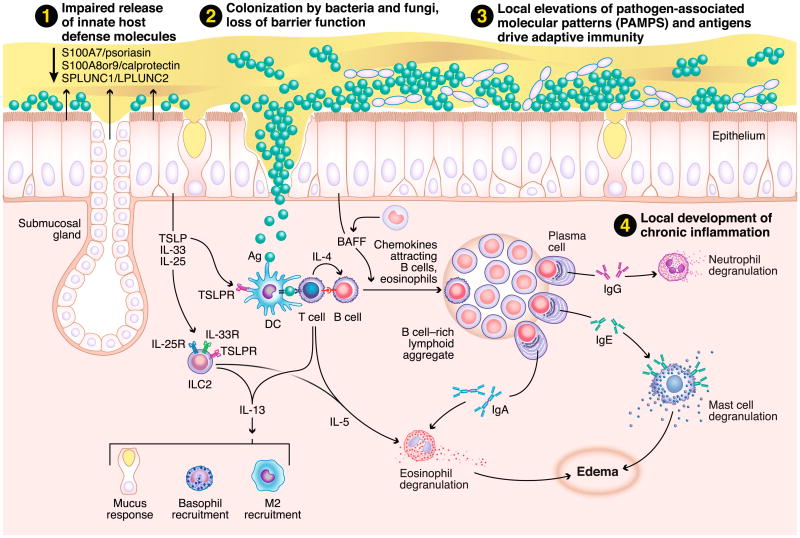Fig. 1.
Mechanisms of inflammation associated with CRS. 1 A defective epithelial barrier likely plays a critical role in the initiation and maintenance of chronic inflammation in CRS. These defects include reduced secretion of innate host defense molecules and loss of the airway epithelial barrier, along with decreased mucociliary clearance. 2 This in turn may result in increased colonization by S. aureus and, in some cases, fungi. 3 As a result, there is a local accumulation of PAMPS, and other antigens and/or allergens, in the sinonasal cavity that can easily access the underlying mucosal tissues through the defective epithelial barrier. 4 Altogether, this results in the activation of innate effector immune cells (eosinophils, mast cells, ILC2s, etc.) and recruitment and activation of adaptive effector immune cells (T and B cells) to the tissue mucosa

